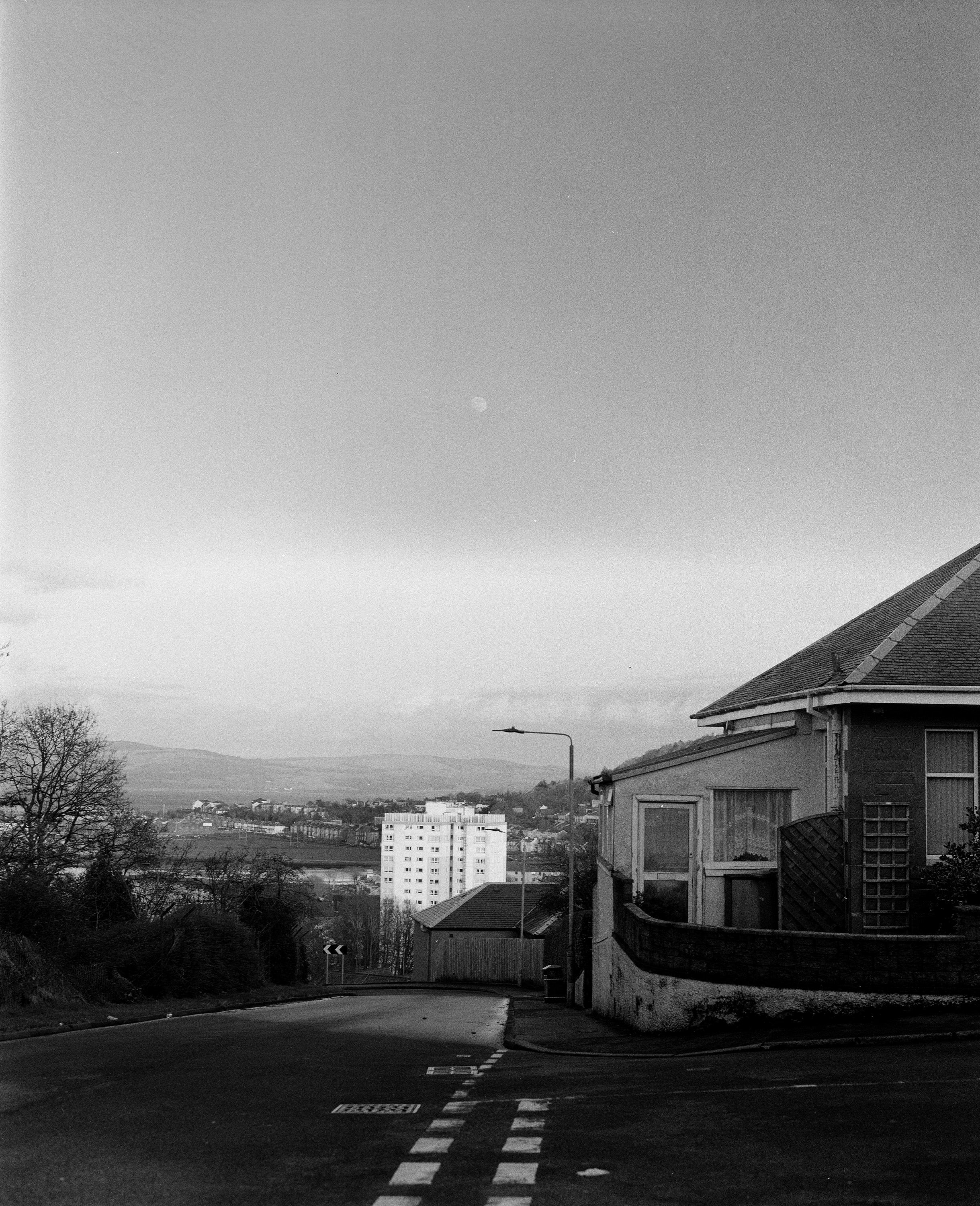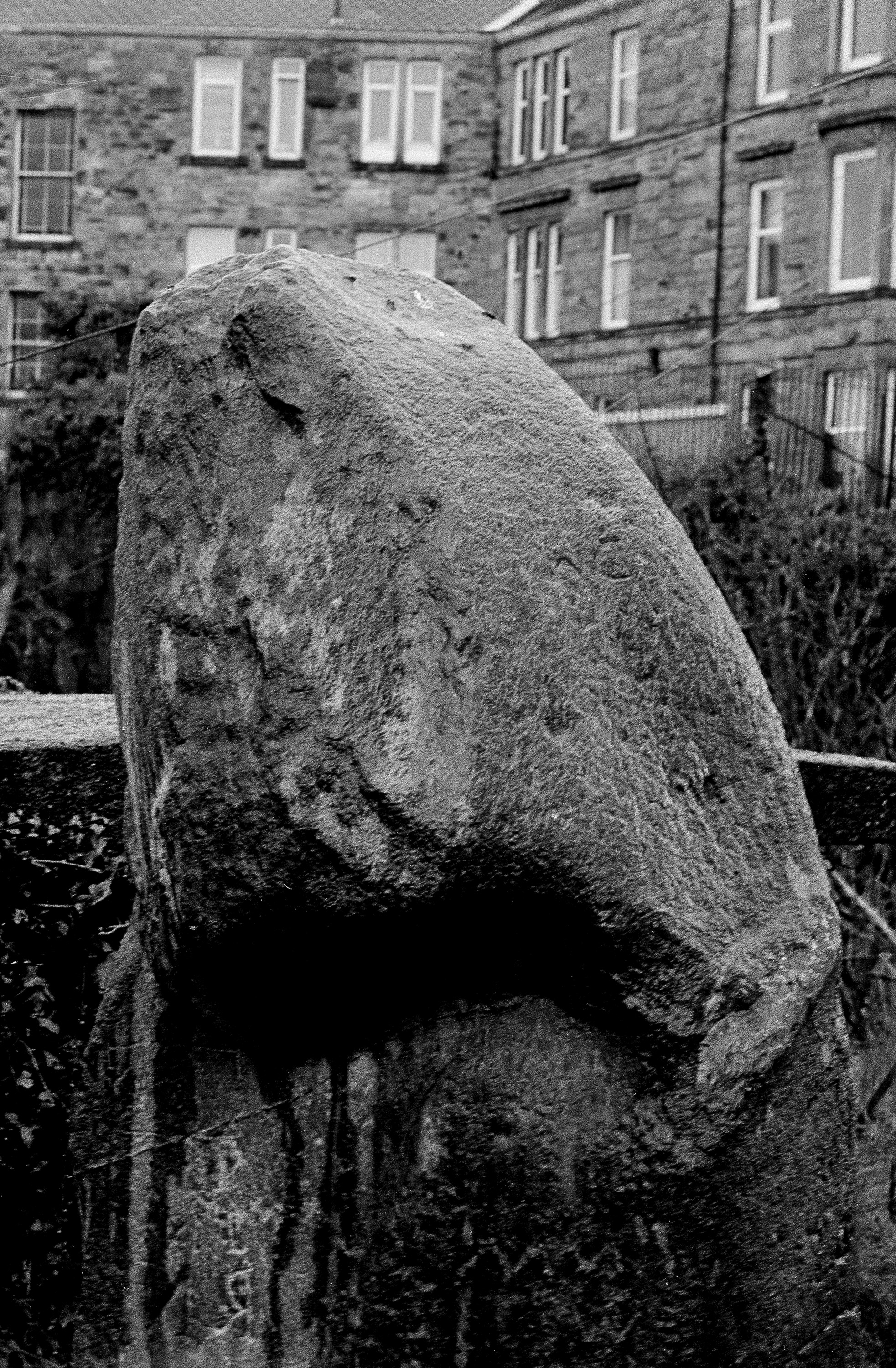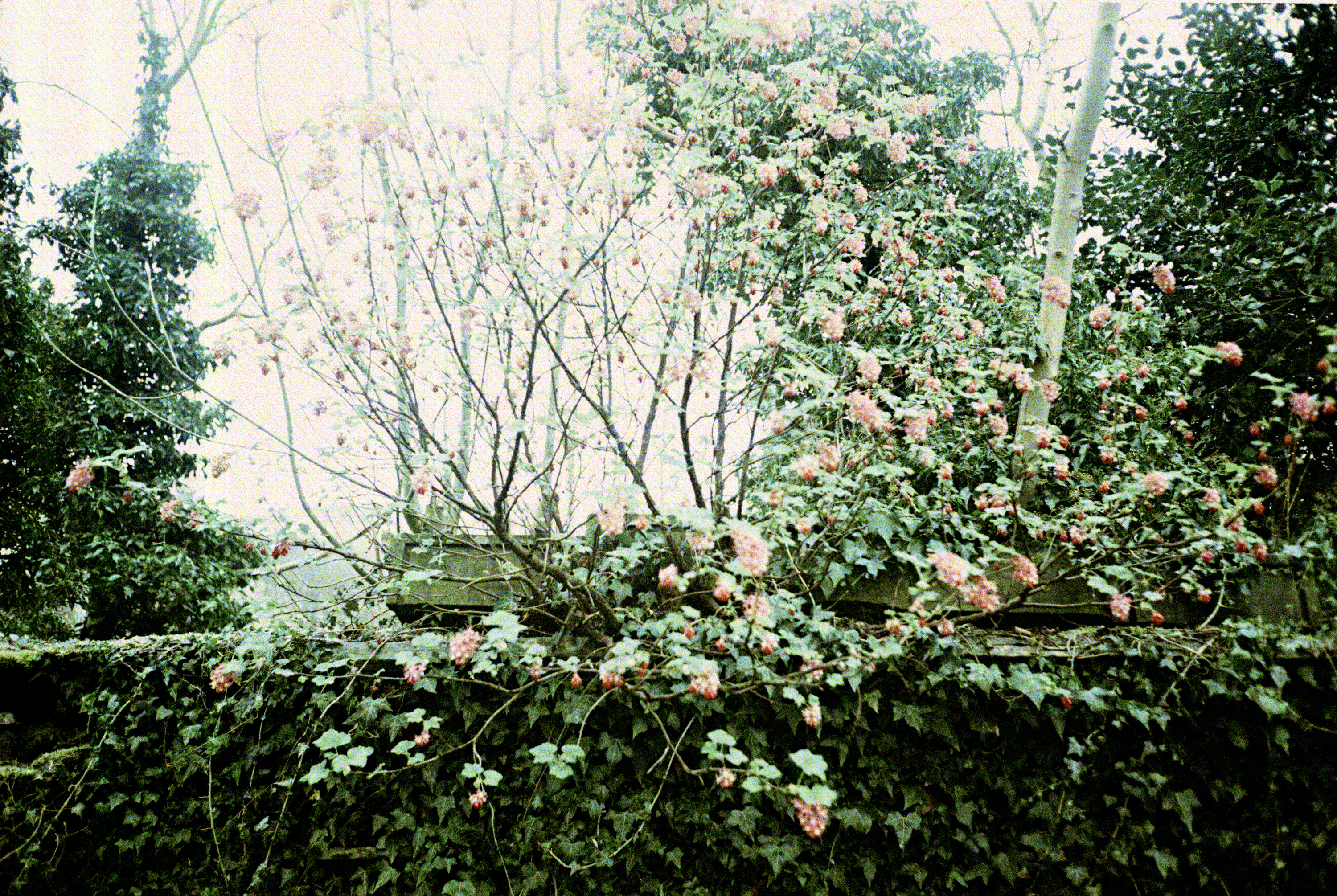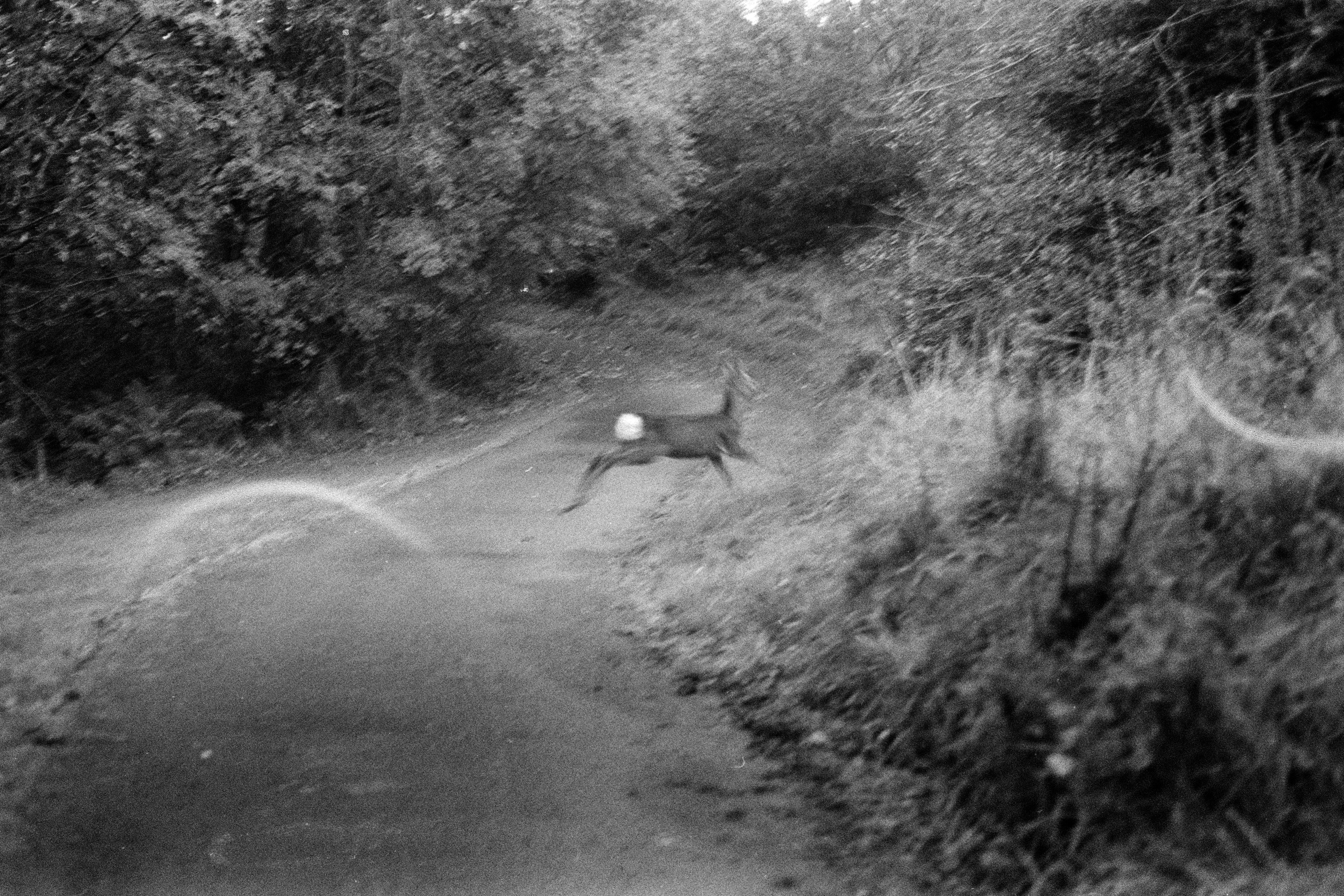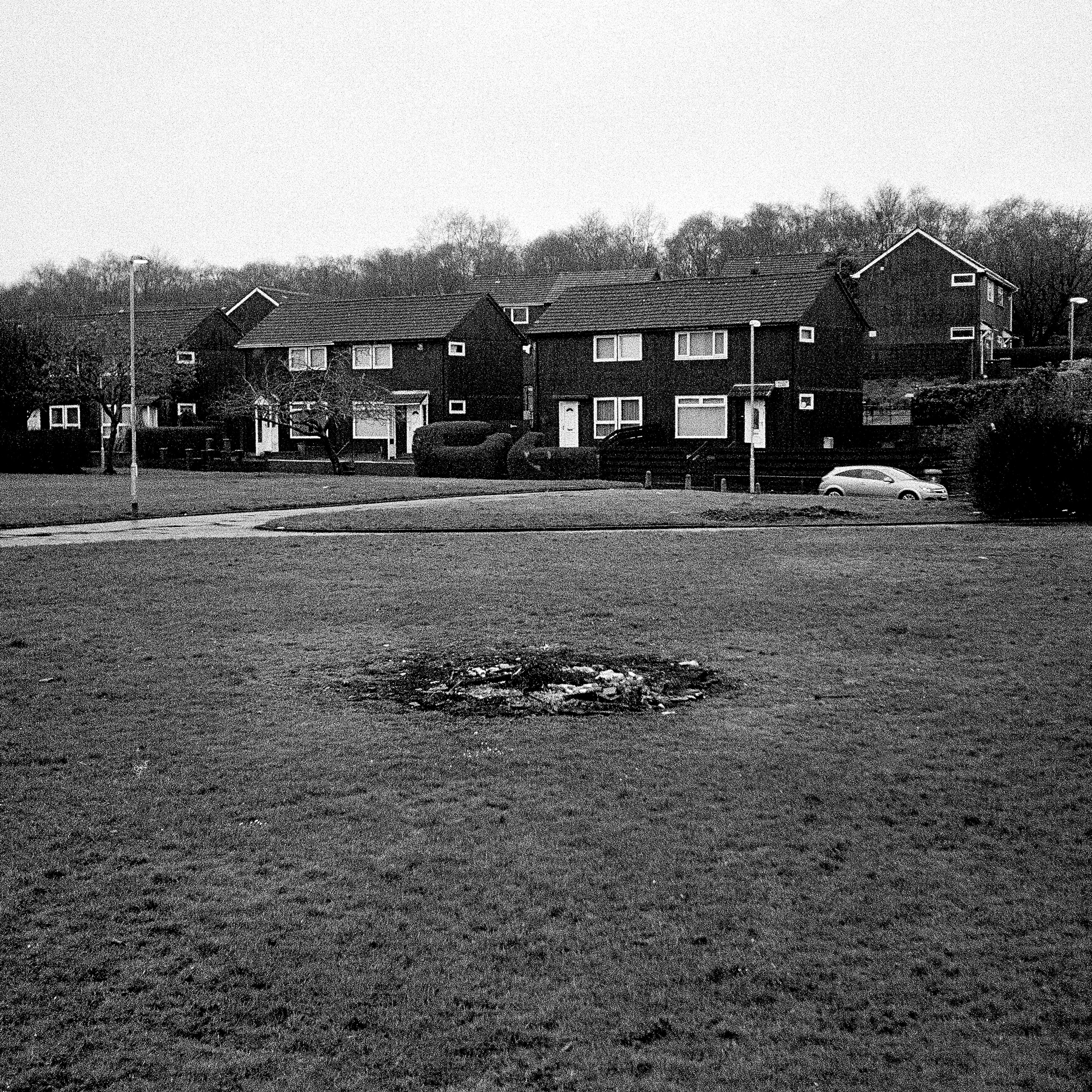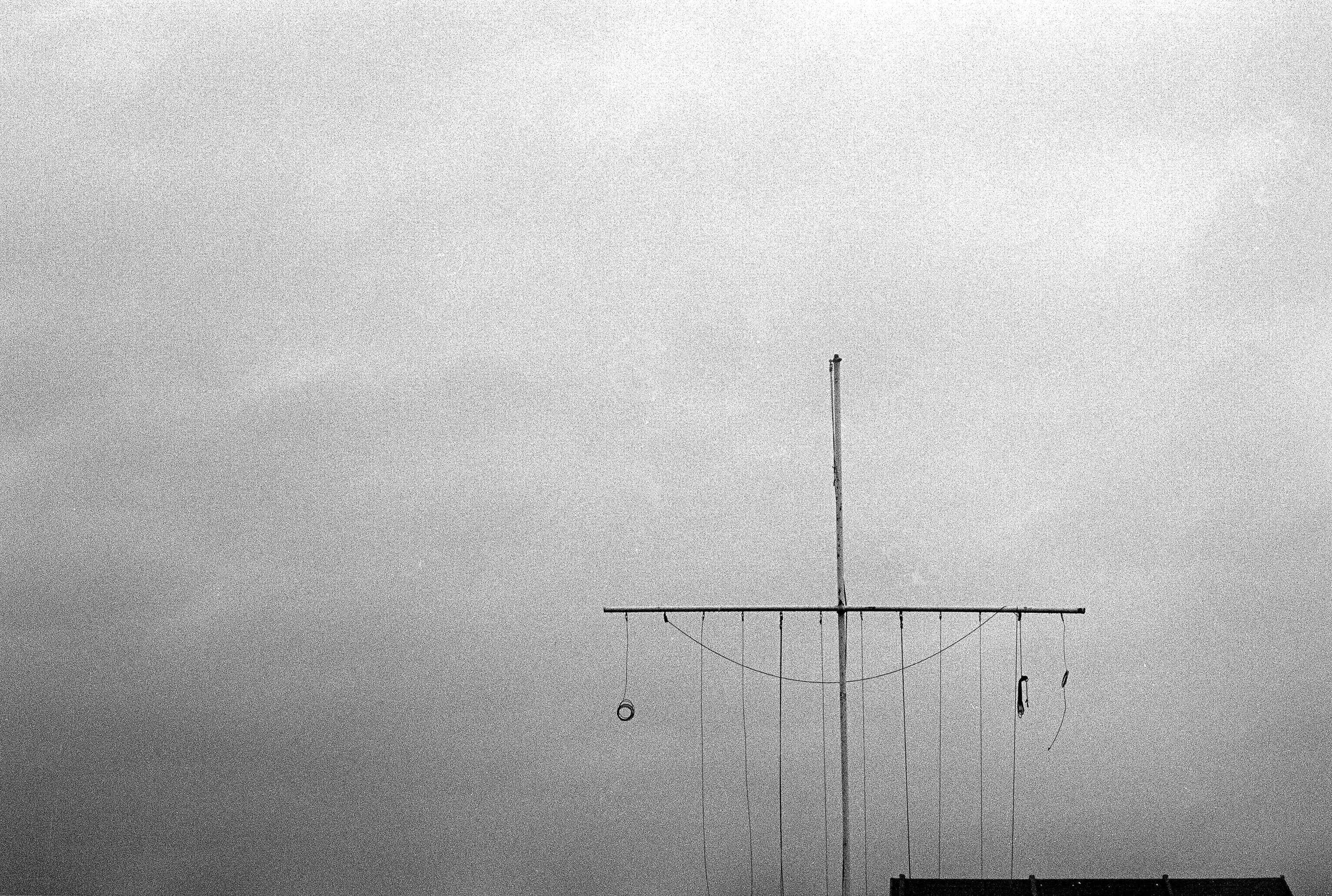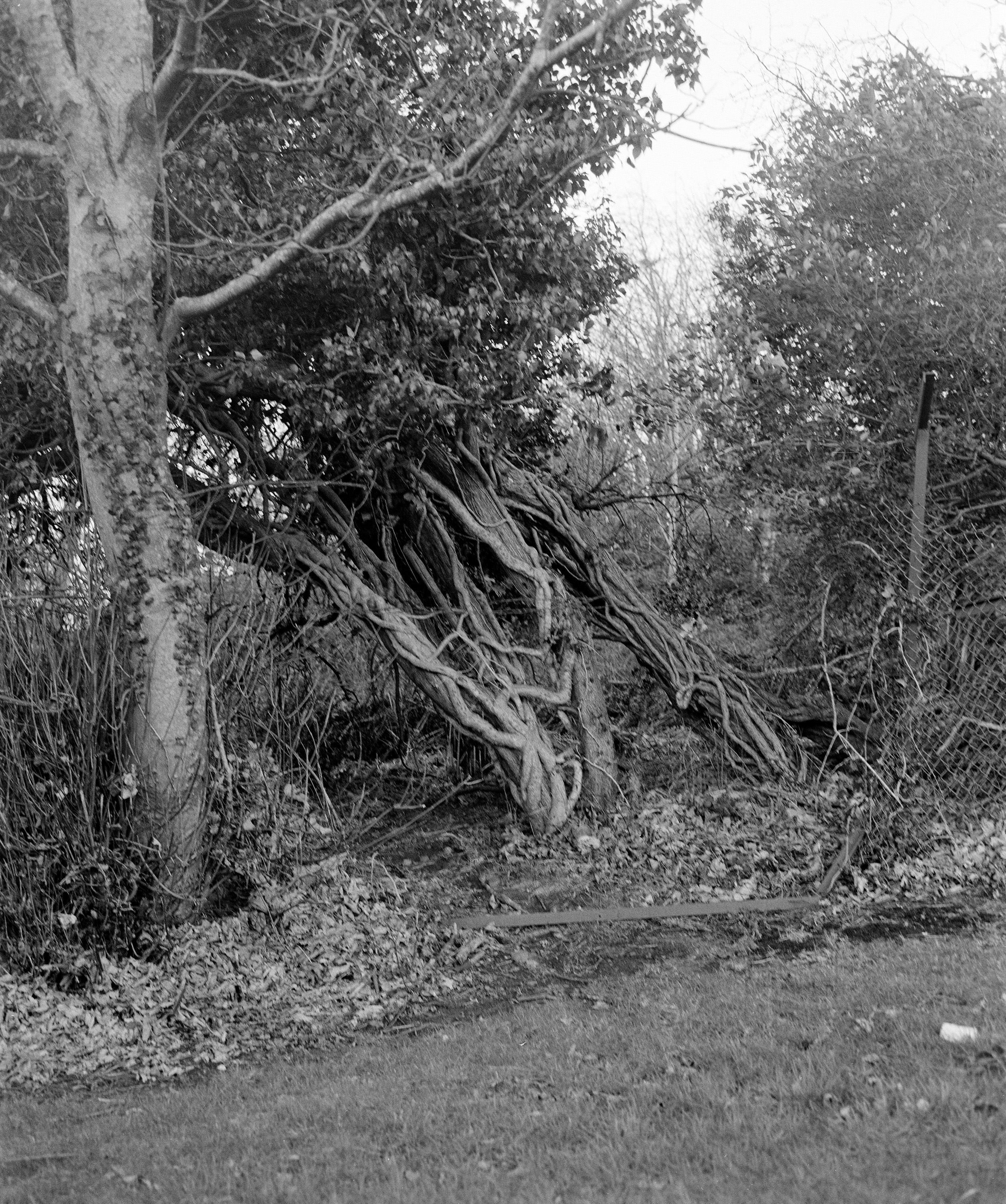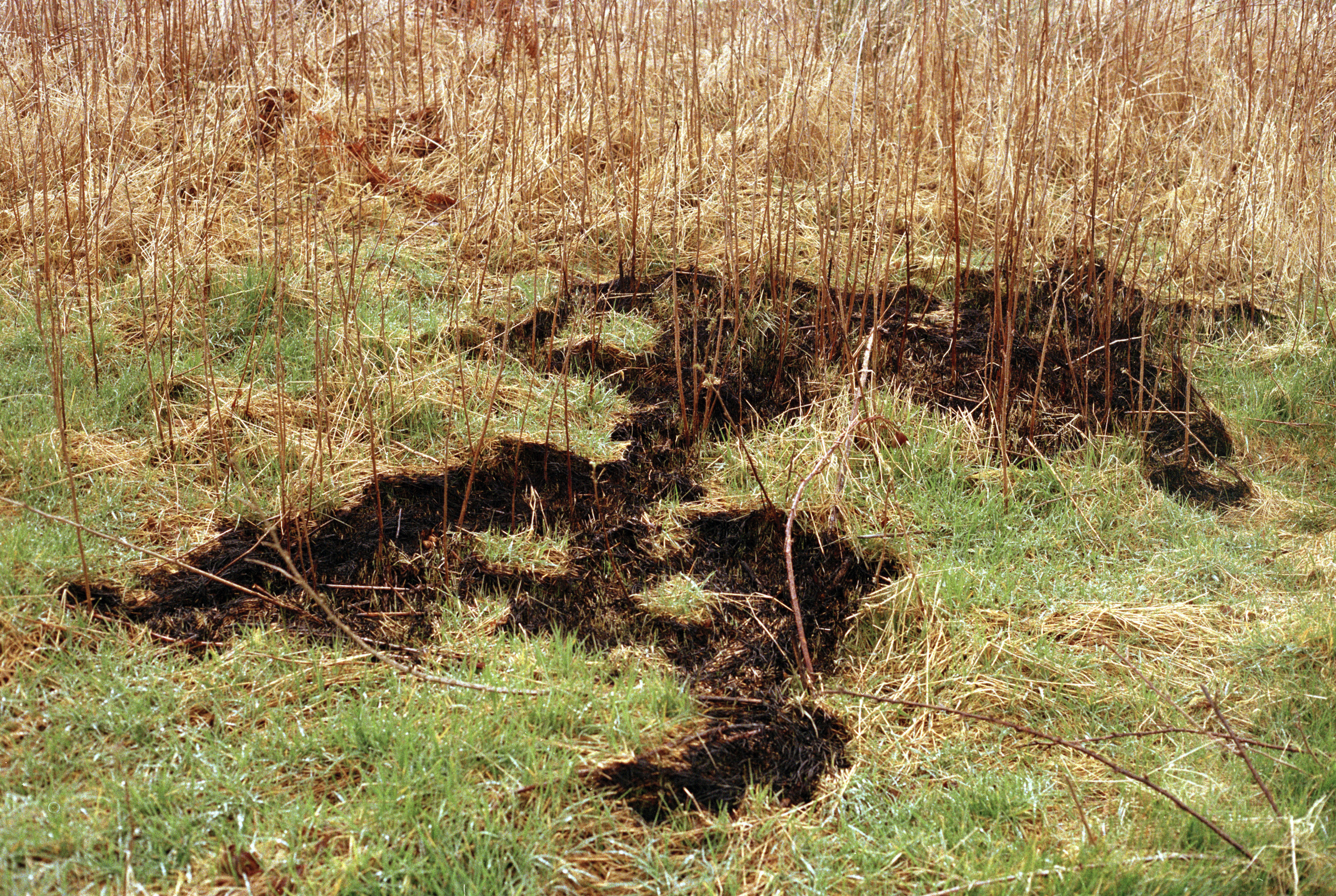"The idea of a 'home town' is a swollen utopia of childhood memory fragments. It's something like the original landscape". Daido Moriyama, Tales of Tono
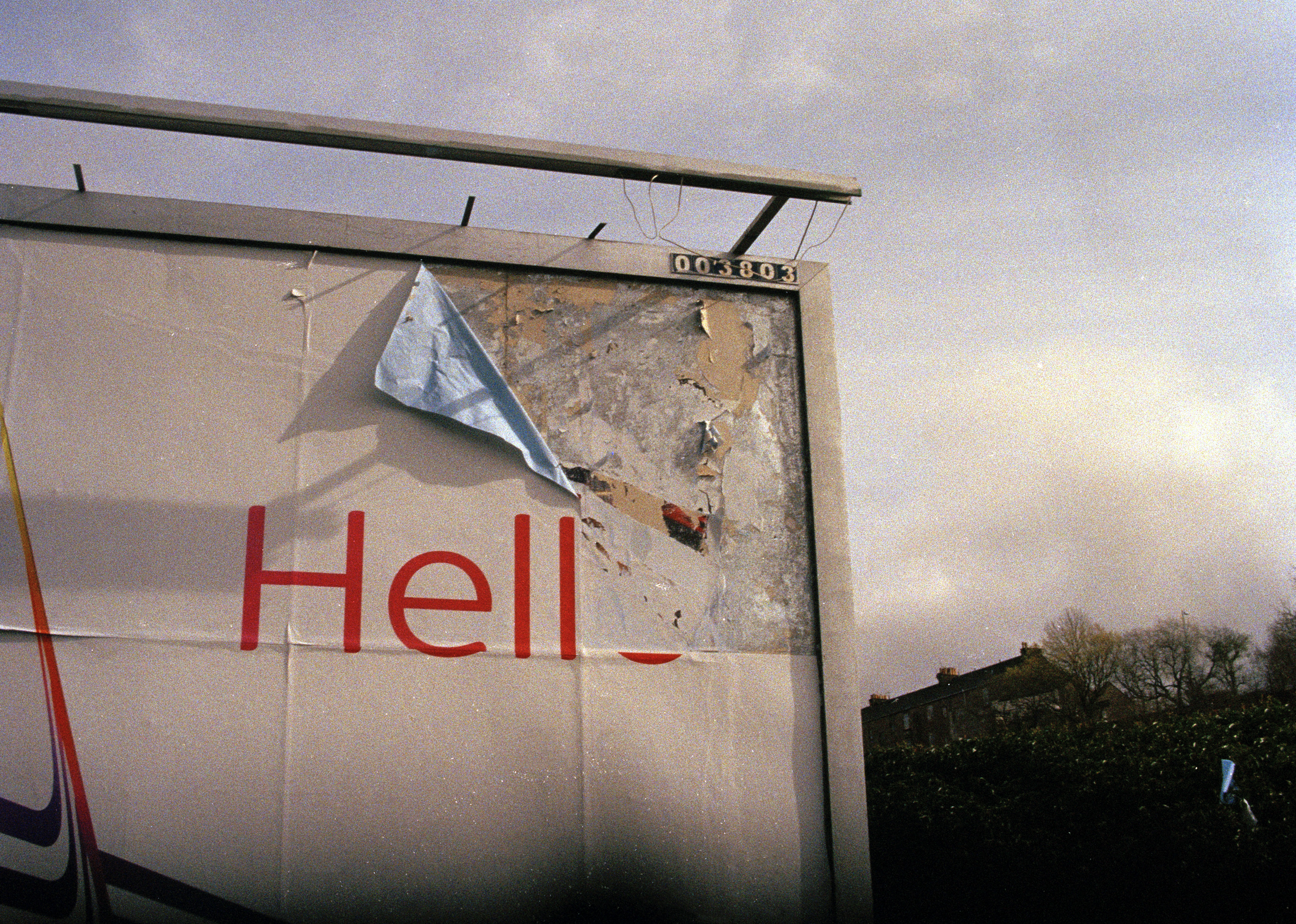
In his bookwork Tales of Tono, Moriyama uses the titular town to build a childhood home absent due to growing up an army brat, to harness the myths and legends of the place to map out an 'original landscape' for himself. Inspired heavily by the quote from his essay, I have been photographing my own original landscape, the coastal district of Inverclyde, itself a place of myths and legends colliding with a sometimes serene, often imposing terrain.
That landscape also occupies peculiar political spaces. The burning of women as witches was highly prevalent in Inverclyde. James Watt, the father of the commercial steam engine, that critical agitator of the industrial revolution and lynchpin of modern capitalism, was born in Greenock, and his presence is memorialised throughout the region. A place of vast inequality, much of the area's generational wealth came from its involvement in the slave trade, specifically sugar cane importation. Inverclyde's shipbuilding industry was decimated by Thatcherite policies, with a similar fate befalling its technological industry in the 90s and 00s. Christian Sectarianism is still rife. In addition Inverclyde sits on the banks of the River Clyde opposite the mouth of Gare Loch, where the Faslane missile base holds the UKs stockpile of Trident nuclear missiles.
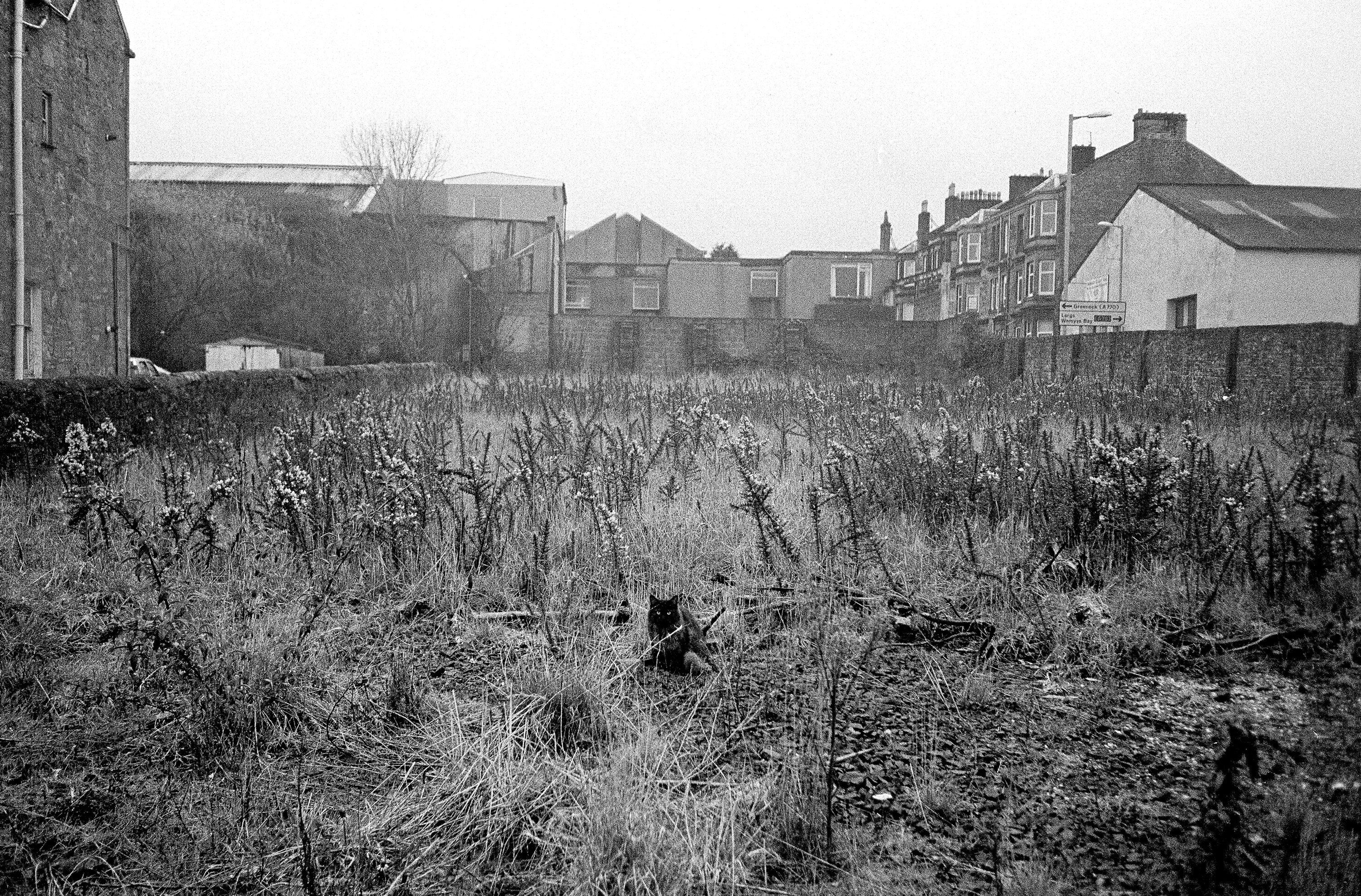
My original landscape is a place of weirdness and loss, the death of possible futures and a glimpse into Somewhere Else. However it is not just a localised place of personal trauma, but also a part of a bigger world, one of imbalanced power structures, privileges and oppressions. As artists, how do we navigate the personal through the political?
